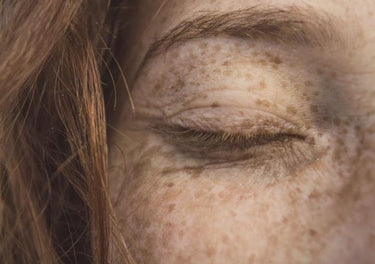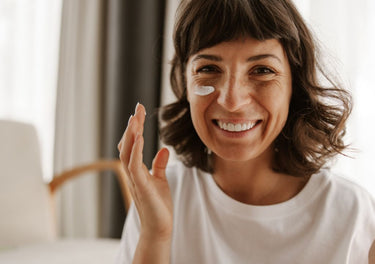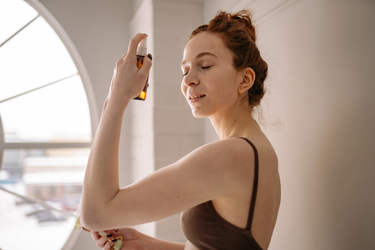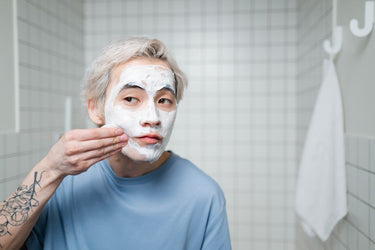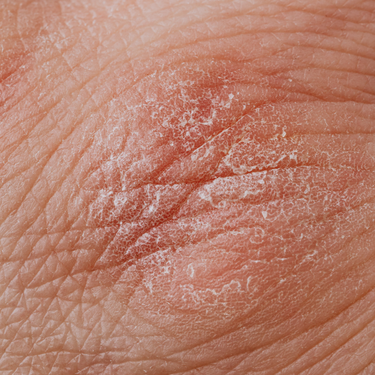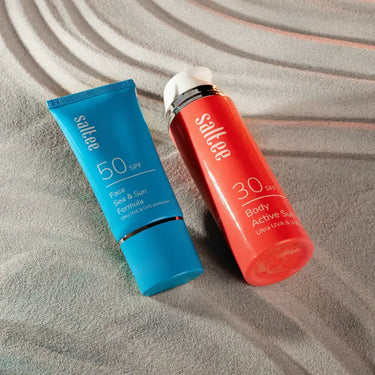How To Treat Post-Summer Pigmentation

Alas, summer is over. The leaves have started to change, temperatures have dropped, and we have officially entered autumn. Although 2020 hasn’t been what many anticipated, we still have the lasting memories of a lockdown summer. However, if you have pigmentation, you are likely to have a visible reminder of the intense heatwaves experienced during lockdown.
Many haven’t jetted abroad to warmer climes this year, but pigmentation continues to be the number one skincare concern we see and treat. Here at Face the Future, we want to help reverse the effects of summer and prepare your skin for the colder months ahead.
Pigmentation presents itself in dark patches (hyperpigmentation) or light patches (hypopigmentation) and can appear anywhere on the face or body. It’s most commonly seen in areas that are exposed to the sun such as the face, neck, décolleté and hands.
Types of Pigmentation
Let’s take a look at two of the most common forms of pigmentation and how we can treat them.
Hormonal
Melasma is a form of pigmentation that is often more commonly found in women, especially those with darker skin tones. This is caused by exposure to harmful UV rays and can also be attributed to hormonal influences. Hormonal pigmentation can often be more difficult to treat as it ties in with pregnancy, the use of contraception and other contributing factors. These factors all alter hormone levels, which can lead to exacerbating the pigment-producing cells in the skin. Melasma often appears as symmetrical patches on the face and body, making it easier to identify.
Sun Damage
UV rays are responsible for stimulating pigment cells to produce melanin. Melanin is what gives us our summer tan, but overexposure can result in dark patches. Now when you don’t wear SPF, the UV rays do their damage much faster. It’s imperative to use SPF and to remain diligent with your use. Pigmentation caused by sun damage is the most common type of pigmentation. This can appear on skin as freckles, sunspots and patches of discolouration. These get darker in the summer months and without treatment they can be permanent.
Pigmentation Treatments
Cosmelan is an in-clinic treatment combined with a home maintenance system designed to treat, prevent and maintain long lasting results. The treatment itself is a mask that is applied by your practitioner and left on for 8 hours. In this time, you are able to go home and remove the mask when the time is complete. You will then manage the results of your peel by using the Cosmelan home care system for 12 months. The home maintenance creams contain inhibitors that keep your pigmentation under control. Read more about the treatment here.
Cosmelan aims to achieve a 93% improvement in pigmentation. This fantastic treatment has allowed us to achieve amazing and life changing results. It does require commitment that you must be willing to dedicate yourself to, but your skin will look and feel fantastic and benefit not only from a brighter, smoother, clearer complexion but an overall health enhancement.
During the Cosmelan treatment process, it is important to only use specific Mesoestetic products recommended by your practitioner. Don’t forget the importance of wearing SPF every day. Just one day without SPF could reverse the hard work you’ve put in to improve your pigmentation.
The Best Products for Pigmentation
For those looking to improve pigmentation and skin tone without undergoing an in-clinic treatment such as Cosmelan, we’ve listed some of our favourite products you can incorporate into your skincare routine.
Mesoestetic Ultimate W+ Whitening Cleanser Foam
 Helping to eliminate dead cells and impurities, this glycolic and lactic acid blend also helps to effectively remove the remains of make-up. The creamy texture becomes a soft rich foam, which is easy to rinse off, leaving the skin moisturised, fresh and luminous.
Helping to eliminate dead cells and impurities, this glycolic and lactic acid blend also helps to effectively remove the remains of make-up. The creamy texture becomes a soft rich foam, which is easy to rinse off, leaving the skin moisturised, fresh and luminous.
SkinCeuticals Discoloration Defense Serum
 This high-potency serum utilises active ingredients including Tranexamic Acid, Niacinamide and Hepes, which are clinically proven to reduce the appearance of key types of skin discoloration. The daily-use dark spot corrector improves the appearance of key types of skin discoloration, including stubborn brown patches and post-acne marks.
This high-potency serum utilises active ingredients including Tranexamic Acid, Niacinamide and Hepes, which are clinically proven to reduce the appearance of key types of skin discoloration. The daily-use dark spot corrector improves the appearance of key types of skin discoloration, including stubborn brown patches and post-acne marks.
This state-of-the-art, powerful anti-ageing treatment protects fibroblasts and improves the synthesis of collagen in the skin. Thanks to the inclusion of Ascorbic Acid, the purest form of Vitamin C at a high concentration of 15%, skin is protected from the damaging effects of photoaging and the high concentration of antioxidants helps to improve skin’s barrier function.
Dermaceutic Activ Retinol 1.0%
A powerful serum that boosts cell renewal and combats the visible signs of ageing. The 1.0% retinol formula is also enriched with Vitamins C and E that combined improve sun damage, uneven texture, dullness and fine lines and wrinkles. This powerful yet gentle serum is suitable for all skin types and should be applied to cleansed skin once a day. If you’re new to using retinol, we would advise that you start with Activ Retinol 0.5% and build up your skin’s tolerance before using 1.0%.
Mesoestetic Mesoprotech Melan SPF 130+ Pigment Control
The first (…and last) line of defence is always to prevent the pigmentation from occurring in the first place. To stop it from getting worse you have to apply sunscreen daily and diligently. Now don’t think that applying your foundation with SPF 10 is going to suffice in protecting your skin. Those with pigmentation issues are advised to wear a broad-spectrum SPF 50 sunscreen 365 days a year, come rain or shine.
The Mesoestetic Mesoprotech Melan SPF 130+ Pigment Control, offers high quality sun protection with UVB 131 and UVA 67, offering superior protection against all ranges of damaging light that can lead to premature ageing. Mesoestetic Mesoprotech technology protects skin against UVB and UVA radiation as well as visible light (HEV) and infrared radiation (IR).
The Best Ingredients for Pigmentation
When looking for products to brighten, achieve a more even skin tone and improve the appearance of pigmentation, there are a few key ingredients to look out for.
Vitamin C
Vitamin C comes in various forms, but the most commonly used formulation in skincare is L-Ascorbic. This form of Vitamin C helps to prevent UV damage thanks to its antioxidant properties, is an anti-inflammatory, stimulates collagen production and helps to reduce pigmentation and brighten skin tone.
Glycolic Acid
This falls under the AHA (Alpha Hydroxy Acid) family and is one of the smallest molecules. It penetrates into the skin and gets to work on removing dead skin cells. This allows for a brighter and more even complexion, making this a hardworking and effective ingredient for pigmentation.
Lactic Acid
Like glycolic acid, lactic acid is also part of the AHA family, but this is a larger molecule that remains on the outer layers of the dermis. Similarly to glycolic acid, it reveals a brighter complexion and is especially good for those with sensitive skin.
Tranexamic Acid
A true brightening powerhouse, tranexamic acid fades discoloration, brightens skin and helps diminish the appearance of post-acne scars. This is suitable for all skin types but if you are particularly sensitive, make sure to do a patch test. Also, remember not to mix your acids, stick to using one!
Niacinamide
Niacinamide, also known as vitamin B3, as well as the other B vitamins, are well known for their soothing and healing properties. Niacinamide delivers many benefits to skin such as boosting hydration, fading pigmentation, aiding collagen production and protecting skin from environmental damage. It does so much, it would be easier for us to list what it doesn’t do! What is important is that it has been proven to fade pigmentation and can be used alongside other actives.
For help and support with finding the right skincare routine for your pigmentation-prone skin, complete our online skin test or speak to our skincare experts on 0113 282 7744 (option 1).
For more information on the Cosmelan treatment, call Face the Future to book your in-clinic consultation on 0113 282 3300 (option 2), email info@facethefuture.co.uk or enquire online.







